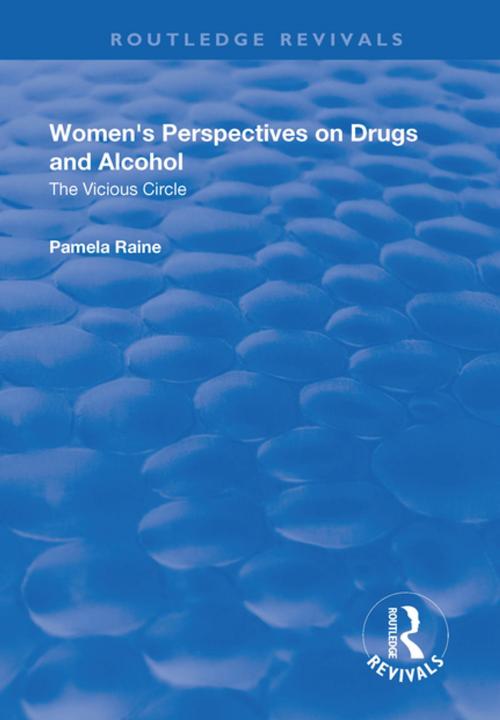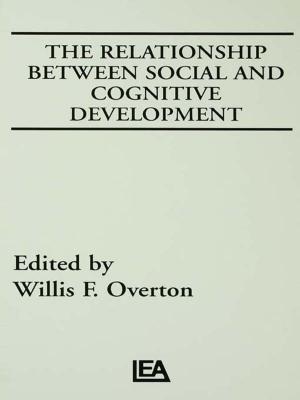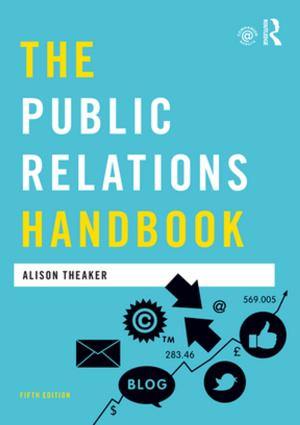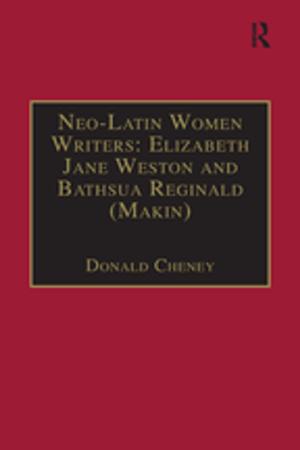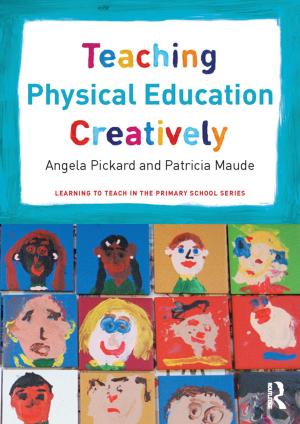Women's Perspectives on Drugs and Alcohol: The Vicious Circle
The Vicious Circle
Nonfiction, Social & Cultural Studies, Social Science| Author: | Pamela Raine | ISBN: | 9781351740920 |
| Publisher: | Taylor and Francis | Publication: | February 6, 2018 |
| Imprint: | Routledge | Language: | English |
| Author: | Pamela Raine |
| ISBN: | 9781351740920 |
| Publisher: | Taylor and Francis |
| Publication: | February 6, 2018 |
| Imprint: | Routledge |
| Language: | English |
This title was first published in 2001. This text explores a number of questions concerning women's problem drug use and drinking. It details findings from research which examined the type of problems women experience; how, why and by whom a woman's substance abuse becomes identified as a problem; and what happens when they seek help. The author recognizes the centrality of gender and gender relationships and aims to go beyond the traditional view of gender that has been put foward in relation to substance abuse. She explores the complexities of gender as a process and an institution, and the subtle ways it infiltrates the lives of users. On a theoretical level, Pamela Raine introduces her ideas into a field where women have traditionally been the underdogs. She offers a thorough account of women's problematic experiences with alcohol and drugs, and consciously allows the voices of these women to come through. In turn, these voices are contextualized by key themes. For example, the substances created chaos in the lives of female users, while complex mechanisms of social control shaped their gendered experiences of these substances. Help-seeking responses of professionals and the advantages and disadvantages of treatment are contextualized as key areas in these gendered experiences. Finally, Raine makes recommendations matching the results of her research. The reader should learn how gender influences the ways in which users co-ordinate their space, their time, their substances, community resources, and others (whether other users, relatives, families or carers).
This title was first published in 2001. This text explores a number of questions concerning women's problem drug use and drinking. It details findings from research which examined the type of problems women experience; how, why and by whom a woman's substance abuse becomes identified as a problem; and what happens when they seek help. The author recognizes the centrality of gender and gender relationships and aims to go beyond the traditional view of gender that has been put foward in relation to substance abuse. She explores the complexities of gender as a process and an institution, and the subtle ways it infiltrates the lives of users. On a theoretical level, Pamela Raine introduces her ideas into a field where women have traditionally been the underdogs. She offers a thorough account of women's problematic experiences with alcohol and drugs, and consciously allows the voices of these women to come through. In turn, these voices are contextualized by key themes. For example, the substances created chaos in the lives of female users, while complex mechanisms of social control shaped their gendered experiences of these substances. Help-seeking responses of professionals and the advantages and disadvantages of treatment are contextualized as key areas in these gendered experiences. Finally, Raine makes recommendations matching the results of her research. The reader should learn how gender influences the ways in which users co-ordinate their space, their time, their substances, community resources, and others (whether other users, relatives, families or carers).
